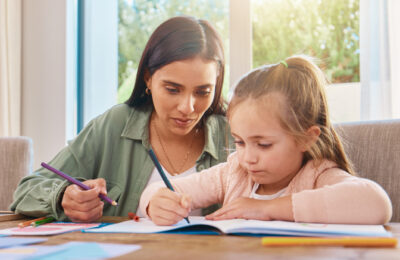
Talking to children about difficult things: an introduction (DAA020)
Understand emotional communication in challenging and turbulent contexts
As the need for improved wellbeing and mental health support grows, professionals from all fields are increasingly being required to talk with children and young people about sensitive and challenging issues. These circumstances can be stressful and can make even the most experienced practitioners feel daunted and ill-equipped for the task.
This interactive course supports professionals to better understand and improve communication when talking to children about difficult things. We will be taking a developmental, psychoanalytic and child-centred approach to make sense of the things that enable or hinder effective communication with children who are in complex situations or who have had adverse life events in their past, making it harder to be open to receiving support.
The course will introduce you to the complexities and multi-layered work required when engaging with children and young people (CYP) in complex situations and will help you make your engagements more effective and therapeutic.
Please note that this is a new, online self-study edition of the earlier live course, Talking to children about difficult things: understanding emotional communication in challenging and turbulent contexts (CPD116).
Aims and learning objectives
By completing this course, you will:
- understand the importance of effective communication skills in providing safe and containing care to children and young people
- identify different theories that can help to explain why talking about sensitive and challenging things can be difficult
- explore and reflect on personal responses to a range of challenging scenarios with children and young people
- demonstrate the use of clear, appropriate and supportive communication that can be used in these scenarios
- recognise each child and young person’s unique context, better understanding the impact of culture, gender, ability, religion, race, geographical location and other protected characteristics
- improve your reflective practice skills and implement a broad range of practical tools that can enhance communication with children and young people.
Who is this course for?
This course is most suitable for professionals working with children and young people in various settings, who would like to enhance their existing skills and understand better what they are faced with, particularly adverse childhood experiences. This includes those working in education, social work (and support staff), health and applied professions, as well as supervisors or managers who would like to better support their staff.
For example, you may be working as a:
- psychotherapist
- learning mentor
- youth worker
- residential worker
- qualified social worker
- counsellor
- teacher or other educational professional
- SEN and inclusion staff member
- doctor, nurse and other medical staff particularly at non-emergency children’s units
- charity staff member
- foster carer
If you are looking to commission a number of places on this course for your organisation or service, please contact us first at CPDevents@tavi-port.ac.uk. Group discounts may be available on request. We would also be keen to hear from you if you would be interested in discussing additional tailored, live training options for your staff, to embed or expand upon the learning from this course.
Course details
We invite you to register your interest for this course so that you can be the first to hear when it opens.
Once open, this interactive course will run continuously, so you can sign up at any time. It will offer five hours of self-directed online learning which you can undertake at a time, pace and location that suits you.
You will have access to the course and its materials for one year. Access begins the day after you’ve booked, when you will receive your account details by email.
In this course you will cover the following areas:
- an introduction to the complexities and multi-layered work required when engaging with children and young people in complex situations
- child development and contextualising the child in front of us, including the different dimensions of development, ways of communicating in different age groups and the Social Graces (inclusivity and the wider context)
- psychoanalytic contributions and other developmental approaches to understanding communication with children and the barriers relating to the child and practitioner
- containment as a central concept
- case studies for review to help you improve your reflective practice capacity and how to utilise this to better understand and engagement with CYP;
- practical tools to communicate with CYP in difficult or complex situations with primary-aged children and adolescents.
Throughout this course, you will be encouraged to use your own cases and experiences in order to apply the various ideas and tools covered to help to further embed these newly refined crucial skills.
There are no specific requirements for the course, although we suggest you are working with, or have an interest in working with children, and want to learn more about how to communicate more effectively with children about difficult topics.
There’s a multiple-choice question assessment at the end of the course, which provides access to your Tavistock and Portman NHS Foundation Trust CPD certificate upon completion.
Course facilitators
Register your interest
Complete the form to be the first to hear when this course opens for applications.



